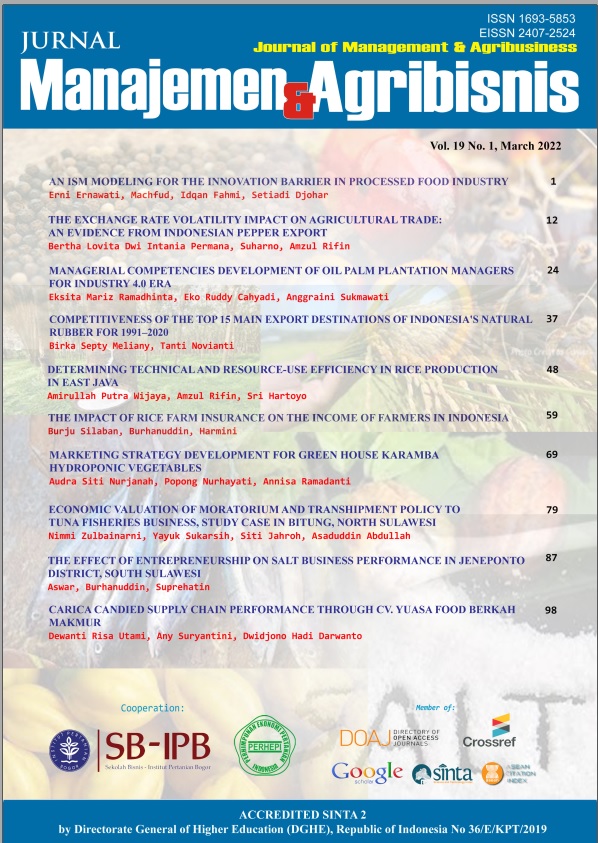Managerial Competencies Development of Oil Palm Plantation Managers for Industry 4.0 Era
Abstract
This study aims to identify the level of difference between the required competency values and the current competency values for plantation managers and determine the priority criteria for the competency of oil palm plantation managers according to the needs of Industry 4.0. The research method used paired sample z test and Analytical Hierarchy Process (AHP). Paired sample z test to determine the significance of the independent variable and the dependent variable. The results using the paired sample z test, that the current average value for soft competency is lower than the required value. Hence, the current average value for soft competency needs to be increased. The results using AHP obtained the priority from the criteria elements, namely social skills, then cognitive abilities, and system skills. Each of the priority elements of the criteria for social skills, cognitive abilities, and systems skills consists of training and coaching employees, responsibilities as well as judgment and decision making. Industry 4.0's approach to social skills resulted in long-distance communication by implementing digitalization. The implementation of cognitive factors as knowledge can encourage innovation and creativity. While system skills, facilitate the process of repetitive activities become quickly done so as to save time.
Keywords: analytical hierarchy process, competency level index, competency model, hard skills, soft skills
Authors
Authors who publish with this journal agree to the following terms:
- Authors retain copyright and grant the journal right of first publication with the work simultaneously licensed under a Creative Commons Attribution License that allows others to share the work with an acknowledgement of the work's authorship and initial publication in this journal.
- Authors are able to enter into separate, additional contractual arrangements for the non-exclusive distribution of the journal's published version of the work (e.g., post it to an institutional repository or publish it in a book), with an acknowledgement of its initial publication in this journal.
- Authors are permitted and encouraged to post their work online (e.g., in institutional repositories or on their website) prior to and during the submission process, as it can lead to productive exchanges, as well as earlier and greater citation of published work (See The Effect of Open Access).

